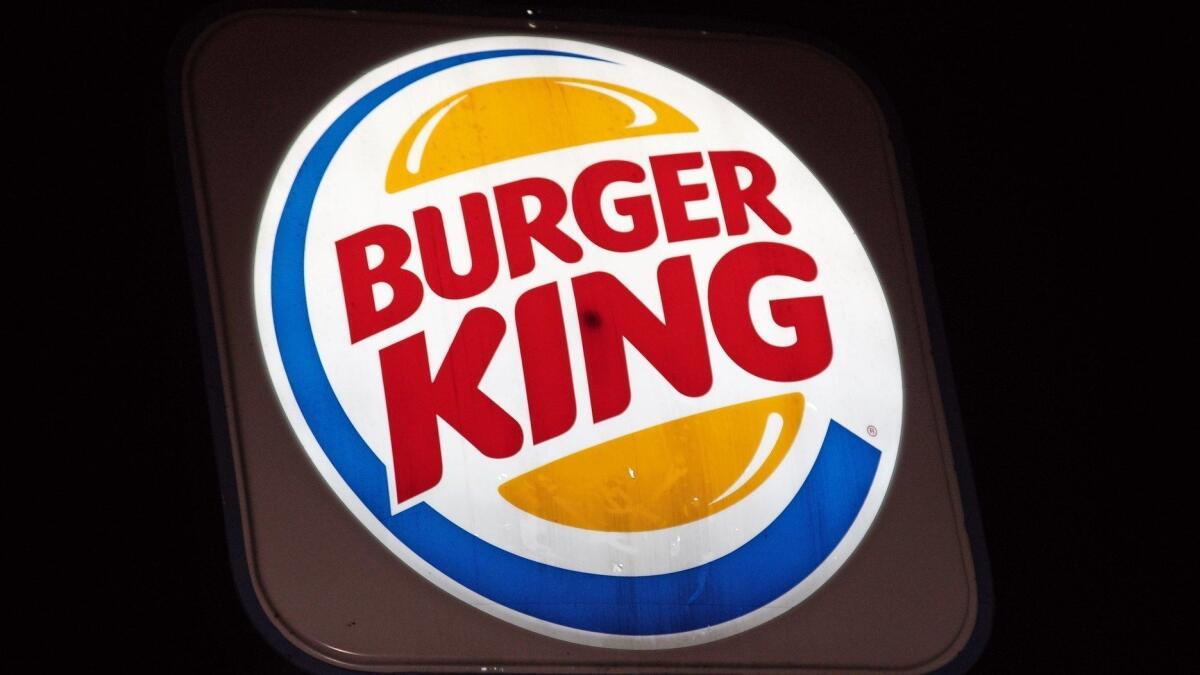States launch investigation targeting fast-food hiring practices

- Share via
Several state attorneys general, including California’s, are launching an investigation of contracts at fast-food chains that prevent their workers from switching franchises, targeting a practice some economists say drags down wages for millions of Americans.
The group will send letters to eight fast-food companies — including Burger King, Dunkin’ Donuts, Panera and Wendy’s — requesting information about “no-poaching” agreements that bar or restrict managers from hiring workers from another store in the same chain.
“No-poach agreements unfairly limit the freedom of fast-food and other low-wage workers to seek promotions and earn a better living,” said Massachusetts Atty. Gen. Maura Healey, a Democrat, whose office is leading the investigation. She is joined by attorneys general from nine other states and the District of Columbia.
No-poaching clauses have come under increasing scrutiny by Democrats and some policy experts over the past several years as wage growth remains a persistent weakness for an otherwise strong and growing economy.
Economists say barring employees from switching between chain locations unfairly prevents them from bargaining for higher wages, while businesses maintain they are necessary for local firms to recoup the costs of their investments in personnel.
Sens. Cory Booker (D-N.J.) and Elizabeth Warren (D-Mass.) said in March that they would introduce legislation to make no-poaching agreements illegal, calling them an “anti-competitive” practice. A Booker policy aide estimated 70,000 fast-food restaurants would be affected by the bill, which has been dead on arrival in the Republican-majority Congress.
The U.S. Department of Justice’s antitrust division has also opened an inquiry into the practice. A letter to be sent by the state attorneys general asks the fast-food companies for information about no-poaching agreements, including which employees have been subject to no-poach clauses and whether the workers were told of the restrictions on their job mobility.
About 80% of fast-food workers are constricted by no-poaching clauses, according to Healey’s office. The other fast-food chains targeted by the states’ investigation are Arby’s, Five Guys Burgers and Fries, Little Caesars and Popeyes Louisiana Kitchen.
Industry advocates have said the practice is important for protecting their investments.
“Provisions in franchise agreements allow franchise owners to protect the significant financial investments they make to train employees the skills and methods necessary to deliver the product or service to customers,” Matthew Haller, a spokesman for the International Franchise Assn., said when Booker’s legislation was introduced.
The efforts to tamp down on no-poach clauses also reflect concerns about the role of “monopsony” power — a monopoly held by a purchaser or employer, rather than by a seller — in restraining wages. Paychecks for most American workers have stagnated despite low unemployment and high economic growth, leading some economists to blame weaker union rights and other constraints on worker power.
Fast-food employees often sign contracts not knowing these provisions prevent them from working at their chain’s other locations.
“By limiting workers’ outside options, a no-poaching agreement reduces worker bargaining power,” Princeton University economists Alan B. Krueger and Orley Ashenfelter said in a 2017 research paper cited by the attorneys general.
“It might help explain a recent puzzle in the U.S. job market: unemployment has reached a 16-year low and job openings are at an all-time high, yet wage growth has remained surprisingly sluggish,” the research paper said.
The practice is not limited to fast-food chains. Jiffy Lube, H&R Block and Anytime Fitness are among the companies that have had no-poaching clauses in their franchisee contracts, according to Krueger and Ashenfelter.
The states said they will ask for information and documents from the firms about their use of the practice. Along with Massachusetts, California and the District of Columbia, the group includes attorneys general in Illinois, Maryland, Minnesota, New Jersey, New York, Oregon, Pennsylvania and Rhode Island.
More to Read
Inside the business of entertainment
The Wide Shot brings you news, analysis and insights on everything from streaming wars to production — and what it all means for the future.
You may occasionally receive promotional content from the Los Angeles Times.










